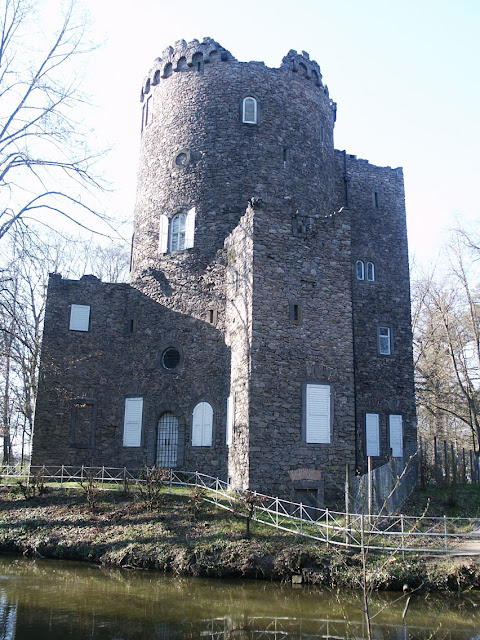Polish Lodge of The Good Shepherd and the Prince Knight of the Croix d'Or
 Lodge Au Bon Pasteur was a Polish Lodge, and like Russian Freemasonry, there was a requisite that prospective members be Christian. Lodges chartered in Russia in the 1730's by England, maintained Christian requisites and worked a variety of esoteric systems of Masonry, capped by chivalric and superior grades. The Strict Observance, the Rectified Scottish Rite and the Swedish Rite were all worked at one time or another in Russia and Poland. The Lodge Au Bon Pastuer in Poland had its own system of Freemasonry that incorporated Rosicrucian influences as well as those of Alchemy, Cabbala and the likes.
Lodge Au Bon Pasteur was a Polish Lodge, and like Russian Freemasonry, there was a requisite that prospective members be Christian. Lodges chartered in Russia in the 1730's by England, maintained Christian requisites and worked a variety of esoteric systems of Masonry, capped by chivalric and superior grades. The Strict Observance, the Rectified Scottish Rite and the Swedish Rite were all worked at one time or another in Russia and Poland. The Lodge Au Bon Pastuer in Poland had its own system of Freemasonry that incorporated Rosicrucian influences as well as those of Alchemy, Cabbala and the likes. This 7th degree of Prince Knight of the Croix d'Or was only awarded to sixth degree members of the system of Bon Pasteur (the 12 degree system of Masonry practiced in a lodge of the same name founded by Jean de Thoux de la Salverte in Poland in 1750 just 6 years after the founding of the Lodge Les Trois Freres) who had succeeded in the collection of the morning dew of the stars. This system was influenced by both the Gold-und Rosenkreuz and the high degrees and chivalric grades of Freemasonry.
According to McIntosh, the "Old laws and statutes of the wise brethren of the exalted Golden and Rosy Cross in the year 1624" was a list of rules given to recipients of the seventh grade of Prince Chevalier de la Croix d'Or, and it bore a great relation to the Testamentum der Fraternitat Roseae et Aureae Crucis. Those initiates who were given the Prince Knight of the Croix d'Or were sworn to uphold and enforce the rules of the Order. This is not dissimilar to the Rules of the RER given to Knights Beneficent of the Holy City in the Scottish Rectified Regime. The Bon Pasteur system of Polish Freemasonry held a Christian requirement, but it proudly proclaimed its tolerance by pointing to its acceptance of Roman Catholic, Eastern Orthodox and Protestant Christians.
David Sheihan Hunter Lindez, BFA, MFA, MSM


Comments